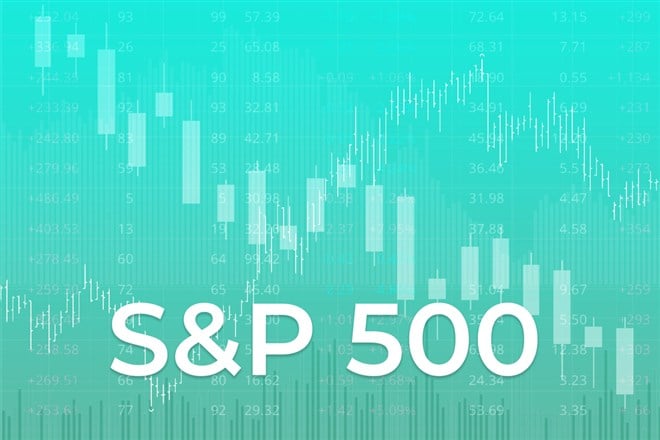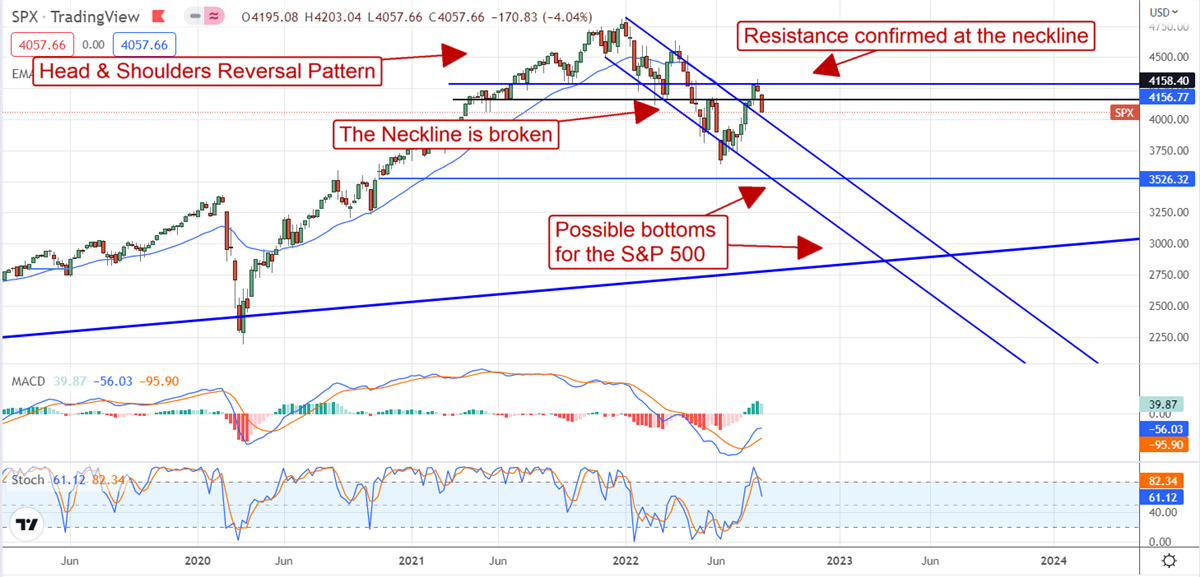
No one can say with 100% certainty that the S&P 500 (NYSEARCA: SPY) is about to crash but, technically speaking, the S&P 500 just flashed a significant signal and isn’t a good one. Those of you who follow my index coverage or read the Weekly Preview know I have been targeting the end of October/early portion of November as the next time to expect an excellent signal but I was wrong. That signal came last week, over the last two weeks actually, when the S&P 500 confirmed resistance at the 4,100-4,300 range. This range is coincident with the neckline of a Head & Shoulders Reversal Pattern and the 5.8% fall from it is a confirmation of the pattern. That’s not good news. The pattern took a year to form and 4 months to confirm so it looks like we’re facing at least 4 months of selling with a potential for 12 months or more over the long term.
Four Reasons The S&P 500 Are In Trouble
1. The Dollar Headwind - Many S&P 500 companies listed the dollar and/or FX as a headwind to their businesses and that headwind is growing. Not only is the pace of inflation still high but the outlook for FOMC action is as strong as ever and that is driving the dollar higher. The Dollar Index is up 21% over the last year and just broke out of consolidation to the upside so it could continue higher for an extended period of time. Add in the fact that fear of global slowing is also impacting the trade and the Dollar Index could very well move up into the $120 range and test the long-term highs not seen since the Dot-Com era. The takeaway here is that FX headwinds are mounting for the S&P 500 and that will cut into results and the earnings outlook.2. The Housing Sector Is Already In Contraction - The housing (NYSEARCA: XHB) and construction industries (NYSEARCA: PKB) are already in contraction shedding more than 2,000 jobs last month and that is not good news at all. The housing and construction industries account for 9% to 10% of U.S. GDP collectively and the pain is not yet over. Fed Chief Jerome Powell added momentum to the S&P 500’s fall last week with his comments at the Jackson Hole conference. To sum things up, he said the FOMC is about to hike rates enough to cause inflation to fall back to 2.0%. It’s been running hot for a while and there is no indication of it falling, just peaking, so the pace of hikes will be aggressive.
3. The Pace Of Interest Rate Hikes Is Going To Hurt More - The market is pricing in at least 50 bps at the next meeting and a high 66% chance of 75 bps and putting further pressure on the economy. Mr. Powell himself said the committee would act forcefully and that businesses and households would feel pain. This means tighter labor conditions, tighter credit conditions, rising cost to carry consumer debt, as well as reduced purchasing power, tougher business conditions, and a broader economic contraction.
4. The Outlook For Earnings Is In Decline - The outlook for S&P 500 earnings growth began to move lower during the Q2 reporting cycle and that trend is not over. The consensus estimates for the broad index fell for Q3, Q4, the full-year 2022, and the full-year 2023 on an expectation of declining margins. Margins are shrinking under the pressure of rising costs that are coming from all angles including input costs, labor costs, shipping, and freight and these costs are still compounding their way through the economy. And that’s not counting the fact inventories are bloating across the retail universe further compounding the troubles faced by many businesses.
The Technical Outlook: The S&P 500 Is In Reversal
The S&P 500 has been in the throes of reversal for some time but the tone of the action has changed. Until now, there was a strong chance the index could begin to move sideways at the current levels and there is still a chance of that happening albeit at a greatly reduced probability. Now it looks like the index will continue the downtrend that began with the Head of the Head & Shoulders Reversal Pattern and move down to retest support at or near the recent lows if not move lower. If the index moves down to set a new low below 3,636 it will probably move down to the 3,525 level if not lower.
Ultimately, the target for the S&P is still the secular-grade long-term trend line put in place in 2009 and it could be reached soon. If the market builds enough momentum on this down leg the S&P 500 could reach the trend line by late October/early November 2022 but I think that is an overly aggressive estimate. More likely, the index will trend lower over the next few quarters and reach the trend line in mid-2022. 
